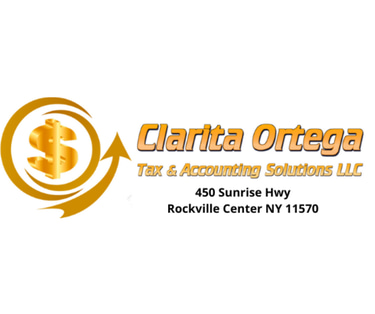516-301-0328
Business Structure Selection
Blog post description.
9/14/20253 min read
Choosing the Right Legal Structure for Your Business: 3 Key Factors to Consider
When you’re launching or restructuring your business, one of the most important decisions you’ll make is choosing your legal structure. This choice determines how you’ll be taxed, how much personal liability you’ll have, and how easily you can grow.
At Clarita Ortega Tax & Accounting Solutions, we guide entrepreneurs step-by-step through this process — helping you select a structure that fits your goals, protects your assets, and minimizes your tax burden.
As you decide on a legal structure, keep these three important considerations in mind:
1️⃣ Complexity vs. Liability Protection: Finding the Right Mix
Many new businesses begin as sole proprietorships because they’re simple and inexpensive to set up.
✅ Pros: Easy to start and manage, minimal compliance requirements.
⚠️ Cons: No separation between your personal and business assets, meaning personal liability for debts and lawsuits.
If you have a partner, you may consider forming a Partnership.
🤝 General Partnership (GP): All partners share in profits — and liabilities. Each partner is personally responsible for business debts.
🧾 Limited Partnership (LP) or Limited Liability Partnership (LLP): Offers some protection — partners can limit personal liability depending on their investment and role.
💡 Partnerships are great for businesses with multiple owners but should always have a clear, written agreement to avoid future conflicts.
If you want limited liability with minimal paperwork, an LLC (Limited Liability Company) could be your best fit.
✅ Benefits: Combines flexibility and protection — your personal assets are shielded from business debts.
🗂️ Compliance: Less paperwork and easier to manage than a corporation.
For greater protection and future scalability, you might look into S Corporations or C Corporations.
🏢 Liability Shield: Protects owners, shareholders, and sometimes even directors and officers.
📋 Formality Required: Must follow corporate formalities like bylaws, annual meetings, and reports.
⚖️ C Corps: Offer the strongest legal protection but face stricter regulations.
💡 Advisor Tip: The “right” entity depends on your comfort with compliance and your need for protection. A professional consultation helps you find the ideal balance.
2️⃣ Tax Treatment That Will Treat You Right
Taxes can make or break your profitability — and your entity choice determines how you’re taxed.
Sole Proprietorships & Partnerships:
Profits “flow through” to your personal return — simple filing.
You’ll pay self-employment tax on your earnings.
In partnerships, each partner reports their share of income and deductions individually.
LLCs:
Enjoy pass-through taxation by default — profits are taxed only once at the owner’s level.
You can elect to be taxed as an S Corp or C Corp for potential savings.
C Corporations:
Profits are taxed at the corporate level and again when distributed as dividends (double taxation).
Business losses stay at the corporate level and can’t offset your personal income.
S Corporations:
Offer the most tax flexibility — pass-through income and the potential to save on self-employment taxes by paying yourself a “reasonable salary.”
💡 Advisor Tip: A customized tax strategy can help you minimize liability and legally keep more of what you earn — no matter your structure.
3️⃣ Room for Growth
As your business grows, you’ll need capital — and your structure affects how you can raise it.
Sole Proprietorships & Partnerships:
You can’t issue stock.
Funding usually comes from personal contributions, loans, or partner investments.
Partnerships can attract additional partners for capital but must clearly define ownership and profit-sharing.
LLCs:
Can admit new members to raise funds but cannot sell company stock.
S Corporations:
Can issue shares but with restrictions:
Maximum of 100 shareholders.
Only one class of stock allowed.
Shareholders must be U.S. individuals (not other entities).
C Corporations:
Ideal for businesses planning large-scale growth or outside investors.
No limit on shareholders or stock classes, making it easier to attract funding.
💡 Advisor Tip: If expansion, outside investors, or future sale are in your plans, structure your business today for tomorrow’s opportunities.
👩💼 Final Thoughts
Your business structure affects everything — from your taxes and liability to your ability to grow. The best choice isn’t one-size-fits-all — it’s the one aligned with your long-term goals, risk comfort, and financial plan.
At Clarita Ortega Tax & Accounting Solutions, we help you choose, form, and manage your entity the smart way — ensuring compliance, protection, and tax efficiency every step of the way.
🌟 Ready to Start or Restructure Your Business?
Let’s set your business on the right foundation from day one.


